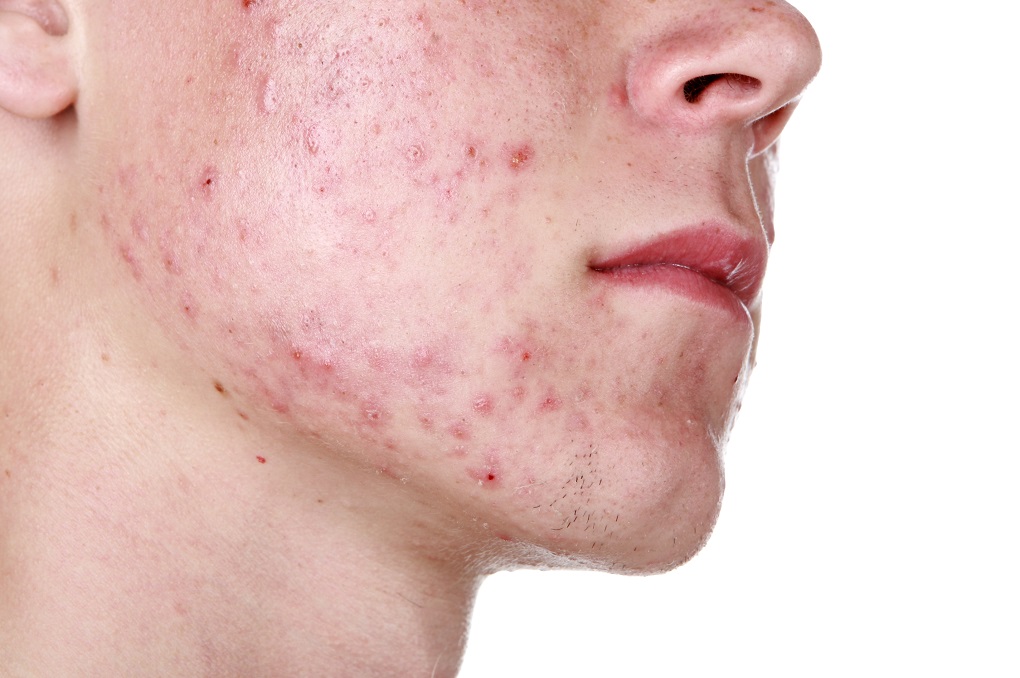

Isotretinoin is a medication used to treat moderate to severe acne. The medication is considered the highest and most effective step in acne treatment. The treatment can be the solution when other treatments have not been satisfactory.
Isotretinoin is used in the treatment of acne in patients who have not achieved satisfactory results with other treatments, such as topical creams and antibiotics. Isotretinoin treatment may also be preferred for patients with extensive acne on the chest and back, as these areas are not well-suited for cream treatment. The medication is often suitable for those who experience acne in adulthood. In cases of severe, scar-forming acne, it is important to start Isotretinoin treatment quickly to prevent further scarring.
Isotretinoin is a medication similar to vitamin A (retinoid). The medication reduces several factors that contribute to the development of acne, including cell division, sebum production, bacterial growth, and inflammation in the skin. Most people notice improvement after 2-4 weeks, but the full effect is seen after approximately 8 weeks. Before this, a temporary worsening of the condition may occur. This does not mean that the treatment should be discontinued, but measures can be taken to reduce the worsening if necessary. Isotretinoin will reduce, and potentially halt, the development of acne. The medication has no effect on existing scars but will limit the formation of new ones.
Isotretinoin is taken in the form of capsules, which should be swallowed whole with water or another beverage. It is common to take between 1-3 capsules daily as a course of treatment lasting 4-12 months. The number of capsules and the total duration of treatment are evaluated individually. The capsules should be taken with a meal or at least with a glass of milk. This is because the medication is fat-soluble and is more easily absorbed into the body when taken with fatty food. A minority of patients may need to undergo multiple courses of treatment due to relapses. Such relapses are usually less pronounced. Long-term courses have been shown to reduce the risk of relapse and are therefore preferred.
Isotretinoin requires regular blood tests. These tests ensure that the patient tolerates the treatment. The treatment can, among other things, increase lipid levels in the body and affect the liver.
Women must take a pregnancy test every month to ensure they are not pregnant. It is also important to have follow-up appointments with a dermatologist to monitor the progress of the treatment.
Women CANNOT use Isotretinoin if they are pregnant or planning to become pregnant. If Isotretinoin is used during pregnancy, it will cause severe harm to the fetus. Even a single capsule can harm a fetus. Therefore, women must use effective contraception for at least one month before starting treatment, during the entire treatment period, and for at least one month after completing treatment. The dermatologist can only prescribe one month's supply of Isotretinoin to women at a time. There are no similar precautions or guidelines for men.
It is debated whether Isotretinoin triggers depression, anxiety, or other mental issues. Mental side effects are rare. If a patient experiences restlessness, low mood, or other mental problems during treatment, they should contact their healthcare provider or other medical professional. It is advisable to inform at least one other person, such as a partner, close friend, or a family member, that you are using Isotretinoin and that there may be mental side effects. It may be easier for people around you to notice mood changes and psychological difficulties. It is also reassuring to have a close person to talk to.
Most side effects of using Isotretinoin are mild and resolve after treatment is completed.